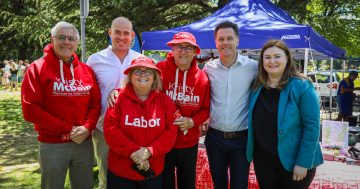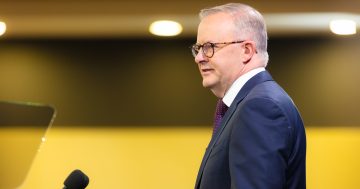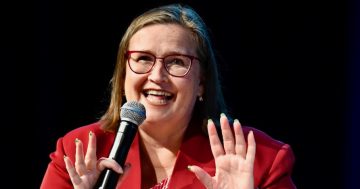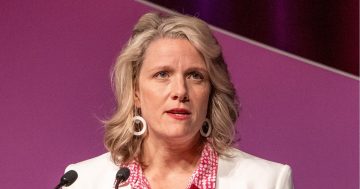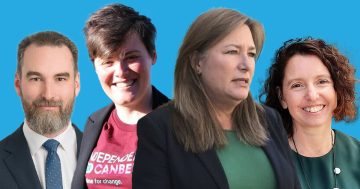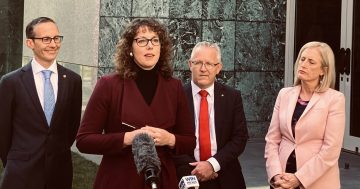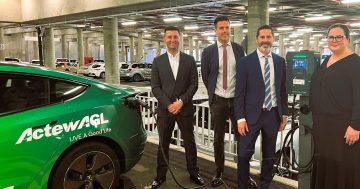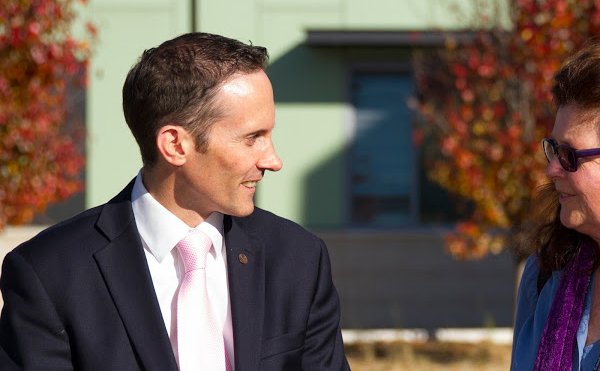
Labor’s Member for Fraser Andrew Leigh has gotten back to us with some answers for you, and a book plug.
Candidates, the readers of RiotACT are your voters and they have questions for you! If you’d like to answer those questions and prove you care what your voters think then email us at contact@the-riotact.com.
You can find the questions here.
UPDATE: Andrew Leigh would like it noted that he submitted these questions on Friday the 23rd. In the time between him submitting his answers and us publishing them Labor made its high speed rail announcement, which is not discussed in Andrew’s answer for obvious reasons.
1. What are your views on euthanasia?
Having seen friends of my family attempt in vain to find a way that their loved ones could die with dignity, I have come to support the principle that a person living with a terminal illness and intolerable pain should have the choice to die with dignity. This can only be done with proper safeguards, but the example from the (now-overturned) Northern Territory laws, and from other countries, shows that this is not an insurmountable problem.
You will know that the Federal Parliament’s jurisdiction is limited to whether or not the ACT and the NT are allowed to make laws permitting euthanasia. When the matter of voluntary euthanasia has previously come before Parliament, it has been dealt with as a conscience vote. This remains Labor Party policy, recognising that people of goodwill can have different positions on the issue.
2. Do you support a High Speed Rail Link between Sydney/Canberra/Melbourne?
Yes in principle, but I am aware that it would be very expensive. As you know, Federal Labor commissioned an extensive study on a High Speed Rail link between between Brisbane, Sydney and Melbourne, with spur lines to Canberra and the Gold Coast.
We could consider building one section first – and because of the natural geography, it would make sense for this to be the Canberra to Sydney leg. It would highlight the advantage of getting from one city to another in a fraction of the time. That’s a real benefit for workers making the commute. But we’d also need to consider the impact on Canberra because there isn’t yet agreement on whether the line should finish at the city or the airport. Moreover, we don’t want our city to be a dormitory suburb or outpost of Sydney or Melbourne. Together with Canberra’s planners we need to give some thought to the social and cultural effects of a high speed rail link and the impact on our quality of life.
In the meantime, we are advancing the project through consultation with community stakeholders. A high speed rail unit has been established in the Department of Infrastructure and Transport. Staff have been working with local councils along the preferred route, with community groups, Regional Development Australia committees and industry organisations. An early task is to address the complex issue of environmental impact.
3. Are you comfortable with the distribution of wealth in modern day Australia?
First off, I’d like to thank my mum for writing a question that allows me to plug my latest book.
Excessive inequality diminishes all of us. As I noted in Battlers and Billionaires: The Story of Inequality in Australia, wages for the top ten per cent have grown 59% since the mid-1970s, while wages for the bottom tenth have only grown 15%. Too much inequality strains the social fabric, threatening to split us into ‘two Australias’. I don’t think that’s a healthy outcome for anyone, and I don’t think it’s consistent with our social traditions. Ours is a nation where most of us don’t like tipping, where we tend to sit in the front seat of the taxi, and where we’ve had previous central bank governors called ‘Nugget’ and ‘Nobby’. And yet the economic reality is increasingly coming adrift from our egalitarian ethos.
The question is what do we want to do about that? In Battlers and Billionaires, I argue that we need to encourage economic growth, preserve a means-tested social safety net, ensure disadvantaged children get a great education, and prize our egalitarian spirit. So it makes me proud to be representing a party whose paid parental leave scheme doesn’t give more to rich families – unlike the Green-Liberal proposal, which will increase inequality.
Federal Labor came up with the Better Schools plan, which gives more to disadvantaged students. And we built DisabilityCare, which provides a vital social insurance pillar to some of the neediest Australians. Our party is the party of egalitarianism. I’m proud of our record getting thousands more students into university. Many of them are the first in their family to go to uni. It underlines what we know – that education is the best pathway to reduce poverty.
4. Recent polling (Auspoll) shows housing affordability to be a critical issue for a majority of Australians, with 84% of respondents saying it was important to them or their families, putting housing affordability ahead of issues such as education, border security, the NBN and NDIS.
The same poll also revealed that 84% of respondents also believe that Australia is not performing well on housing affordability.
Australian Governments are failing badly on this issue of critical importance to Australians.
What would you do to improve housing affordability?
Housing affordability has two strands: making is easier for people to buy their own home and reducing the risk of homelessness for people on low incomes.
On the first score, Federal Labor has made an unprecedented investment in housing that rents below the market rate. For example, the multi-billion National Rental Affordability Scheme has seen federal investment in 1 in 20 of the new houses built in recent years. These homes must rent for at least a 20% discount below market rates. You’ll find NRAS homes throughout the Fraser electorate, from Acton to Bruce to Crace.I’m also a strong supporter of the ACT government’s push to release more land and reduce stamp duty. Katy Gallagher and Andrew Barr deserve great credit for seeing off a ferocious scare campaign at the last election, and continuing with tax reform that’s fairer and more efficient.
Second, to reduce homelessness I’d embrace more partnerships with the not-for-profit and welfare sectors and the construction sector to increase social housing. I’d want to see more of a focus on solutions beyond finding emergency shelter and short term housing options during a crisis. More can be done to ensure that people don’t boomerang back.
We need to have more wrap-around social support and services that transition people from crisis accommodation into something long term and stable. That’s why I’m delighted to see the development of Common Ground in Gungahlin. It’s an innovative model that has delivered promising results for people who have suffered from chronic homelessness.
It’s worth noting that there is a dumb way to reduce house prices in Canberra, and that’s to axe thousands of public servants. This would cause the economy to slump, and house prices would likely fall. There’s nothing smart about that approach, but it’s the one the Liberals are pursuing.
5. To me the NBN seems like a great idea, can you tell me why you think it’s ace/a dumb idea.
Have you ever met anyone who would rather drive a Morris Minor over a Porsche? We’re talking about speed and reliability into the future.
The NBN is more than just a great idea – it’s a great piece of nation building infrastructure that will serve us for generations to come. And it’s happening right now.I was doorknocking in Amaroo recently when one resident told me he’d just gotten it hooked up, and he was enjoying using it to have better conversations with relatives overseas. Others talked about the health and education benefits. No-one came up to me and said “the real problem with the National Broadband Network is they’ve brought the fibre all the way to my home, and I wish they’d stopped it in the cabinet down the street”.
Labor’s investment in fibre to each home is an investment in our economic future. By the time today’s year 7 students finish high school their household’s internet needs may well have increased six-fold. We can’t even imagine how fibre to the home will empower people in decades to come. We know that in the area of health and wellbeing, the technology will bring ‘virtual’ medical and allied health professionals into regional, rural and remote communities to benefit people.
6. Do you think cyclists should be registered?!
It’s an ACT Government responsibility, but I’m yet to be persuaded. At the moment, cyclists merely need to be sober, helmeted, and obey the road rules. As a keen cyclist myself, and someone who’s keen to see more people cycling in Canberra, I would worry that registration might deter casual cyclists.
7. What is your position on gay marriage?
I support same-sex marriage. It is a matter of justice. My Labor colleagues in the ACT feel the same.
If re-elected a Rudd-Labor Government would bring the matter before the Parliament within 100 days.
I’ve spoken on five occasions on same-sex marriage:
— Speaking in favour of same-sex marriage at the ALP ACT conference (30 July 2011)
— Reporting back to parliament on the views of my constituents (24 August 2011)
— Speaking in favour of same-sex marriage to parliament (13 February 2012)
— Telling parliament some of the personal stories from my electors that have led me to favour same-sex marriage (18 June 2012)
— Talking to parliament about the philosophical basis for supporting same-sex marriage (27 May 2013)
8. Would you be willing to cross the floor on matters of strong personal conscience or of significant concern for your electorate?
Federal Labor allows MPs and Senators a conscience votes on issues such as euthanasia and marriage equality. Unfortunately, the Liberal Party didn’t give its members the same freedom when the issue of same-sex marriage came before parliament last year.
9. What are your views on the NSA collecting private information of Australian citizens and corporations, of the Australian government’s participation in similar programmes, and of the apparent silence of Australian politicians on the matter?
I can understand that Canberrans might be concerned about claims that agents at the National Security Agency in the USA can monitor anyone’s personal information and internet activity.
However, Australia’s intelligence agencies operate under a strong legal framework to protect Australians at all times, including when dealing with information from outside Australia. Interception and access to telecommunications in Australia is undertaken strictly in accordance with the law and we are also confident that our close allies similarly understand and respect our legal framework.
10. We hear so much negativity about the opposition when election time rolls around– what three things do you consider to be positive about any of your opponents and why?
I do my best to acknowledge good work by parliamentarians regardless of their political stripes. To take a few examples, I’ve praised Joe Hockey’s speeches on Syria, and did a terrific forum with students at Harrison School with my friend Liberal MP Andrew Laming. I enjoy the company of Greens Senator Larissa Waters and Nationals Senator Fiona Nash. On radio, I enjoy jousting with Liberals Malcolm Turnbull and Arthur Sinodinos. Indeed, Arthur and I held a very genial economics debate at Uni Pub in Civic recently. He’s delightful company and razor sharp, and I hope the Liberal Party puts him at the centre of their economic team in the future.
[Photo by Richard Tuffin]
